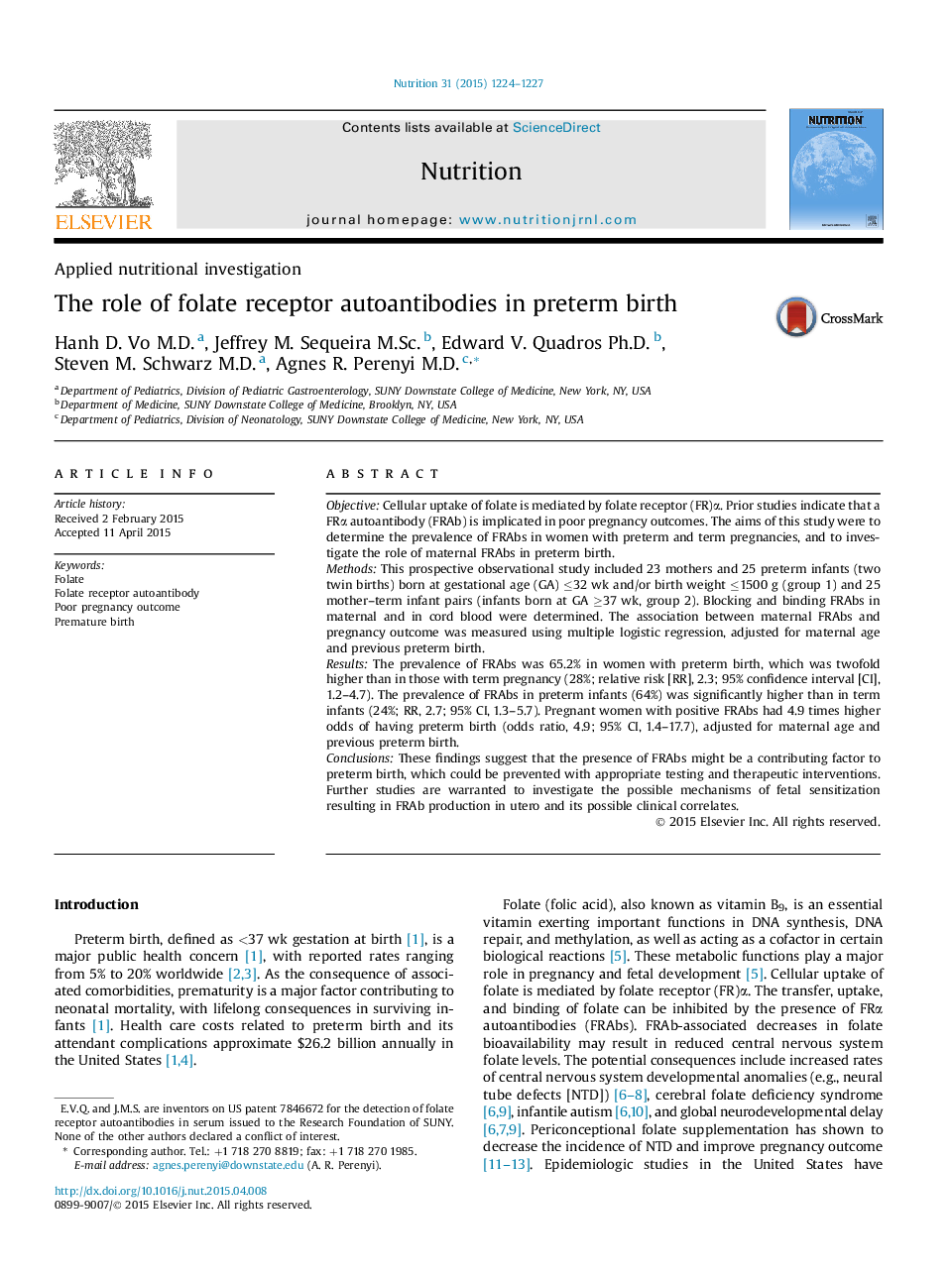| کد مقاله | کد نشریه | سال انتشار | مقاله انگلیسی | نسخه تمام متن |
|---|---|---|---|---|
| 3276140 | 1208530 | 2015 | 4 صفحه PDF | دانلود رایگان |
• Folate deficiency has been associated with adverse pregnancy outcomes and fetal developmental anomalies.
• The transfer, uptake, and binding of folate can be inhibited by the presence of folate receptor autoantibodies (FRAbs), which may alter folate bioavailability.
• This study examined the prevalence of FRAbs in pregnant women and investigated the association between maternal FRAbs and preterm birth.
• The prevalence of FRAbs was twofold higher in women with preterm birth (65.2%) than in those with term pregnancy (28%).
• Pregnant women with positive FRAbs had 4.9 times higher odds of having preterm birth, adjusted for maternal age and history of preterm birth.
• These findings indicate that the presence of maternal FRAbs may be a contributing factor leading to preterm birth, which could be prevented with appropriate testing and therapeutic interventions.
ObjectiveCellular uptake of folate is mediated by folate receptor (FR)α. Prior studies indicate that a FRα autoantibody (FRAb) is implicated in poor pregnancy outcomes. The aims of this study were to determine the prevalence of FRAbs in women with preterm and term pregnancies, and to investigate the role of maternal FRAbs in preterm birth.MethodsThis prospective observational study included 23 mothers and 25 preterm infants (two twin births) born at gestational age (GA) ≤32 wk and/or birth weight ≤1500 g (group 1) and 25 mother–term infant pairs (infants born at GA ≥37 wk, group 2). Blocking and binding FRAbs in maternal and in cord blood were determined. The association between maternal FRAbs and pregnancy outcome was measured using multiple logistic regression, adjusted for maternal age and previous preterm birth.ResultsThe prevalence of FRAbs was 65.2% in women with preterm birth, which was twofold higher than in those with term pregnancy (28%; relative risk [RR], 2.3; 95% confidence interval [CI], 1.2–4.7). The prevalence of FRAbs in preterm infants (64%) was significantly higher than in term infants (24%; RR, 2.7; 95% CI, 1.3–5.7). Pregnant women with positive FRAbs had 4.9 times higher odds of having preterm birth (odds ratio, 4.9; 95% CI, 1.4–17.7), adjusted for maternal age and previous preterm birth.ConclusionsThese findings suggest that the presence of FRAbs might be a contributing factor to preterm birth, which could be prevented with appropriate testing and therapeutic interventions. Further studies are warranted to investigate the possible mechanisms of fetal sensitization resulting in FRAb production in utero and its possible clinical correlates.
Journal: Nutrition - Volume 31, Issue 10, October 2015, Pages 1224–1227
